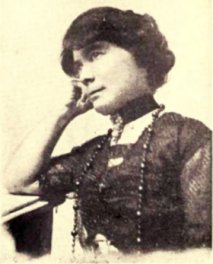Thramping Down to Sligo - Sligo Poets
Main menu:
- Home
-
1912
- 1912
- Sligo Poetry 1912
-
1913
- 1913
- Sligo Poetry 1913
-
1914
- 1914
- Sligo Poetry 1914
-
1915
- 1915
-
Sligo Poetry 1915
- Sligo Newspaper Poems
- Sligo Champion
- Sligo Independent
- Sligo Nationalist
-
1916
- 1916
-
Sligo Poetry 1916
- Sligo Newspaper Poems 1916
- Sligo Champion
- Sligo Nationalist
- Sligo Independent
- The Poets
- Bibliography
- The Author

Sligo Champion 12 April 1913
THRAMPIN’ DOWN TO SLIGO.
Thrampin’ down to Sligo with my peddler’s
cart,
There’s Dublin left behind me and the
plains of Kildare,
Thrampin down to Sligo and the ways
of my heart
Where Maurya’s waitin for me in her
grey-
Just the same dear woman that I kissed
by Loch Gill
Thirty-
still.
I’m sick of Dublin city with its noise and
its fret,
I’m sick of sellin’ vanithees my wares
by the road,
For down beyond the Shannon the black-
thorn bushes set
Their little blossoms out to say that Spring
is abroad;
And one old thrush I’m knowin’ these five
years and more
Is settin’ up her nest beside my own cabin
door.
My little donkey’s tired, and I am tired,
too,
When sixty years are on you what joy
is there in life
But to rest beside the things you know are
always thrue,
And what to man is thruer than his home
and his wife!–
So I’m thrampin’ down to Sligo, to my own
heart’s share
Where Maurya’s waitin for me in her grey-
streaked hair.
The nights are sweet about me and the
dawns rain grey
And every step I go is over good Irish
sod–
‘Were you ever in America?’ a man said
yestherday,
‘Begor, I never was,’ said I, ‘I thank
my God;’
So I’m thrampin down to Sligo where the
sea winds race
And there’s welcome waitin’ for me in my
Maurya’s face.
Teresa Brayton.

Above: Teresa Brayton in 1913
This poem, by the author of the well-
Teresa Brayton was a poet and nationalist, born
She published extensively in many American newspapers and magazines. In 1913 she published her first book of poetry from which this poem comes. She published The Flame of Ireland in 1926 and Christmas Verses in 1934.
Her main themes were the exile's nostalgic loss of homeland, nationalism and religion. She returned permanently to Ireland in 1932 and died in her home, Kilbrook, in 1943. President de Valera unveiled a memorial cross over her grave in 1959.
This poem is a good example of her work with a strong rhythm and rhymes. It is full of nostalgia for the west of Ireland, its rain, cabins, blackthorn bushes and sea winds. It also contains a number of attempts to reproduce an Irish accent through spelling -
There is little effort to fill our any story in the poem and it could even be inferred that the peddler has not seen his wife, Maurya, for thirty-
The third line (